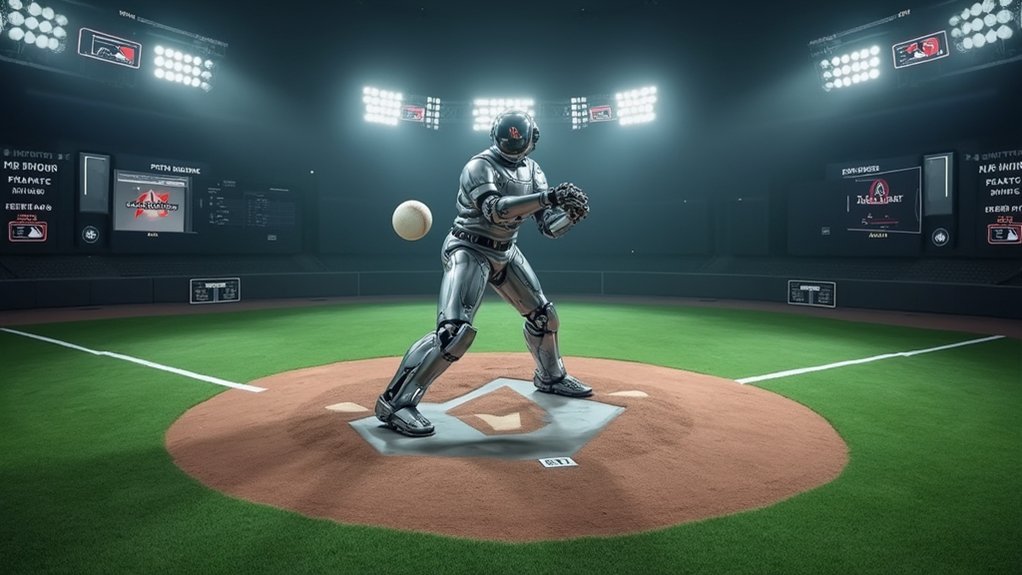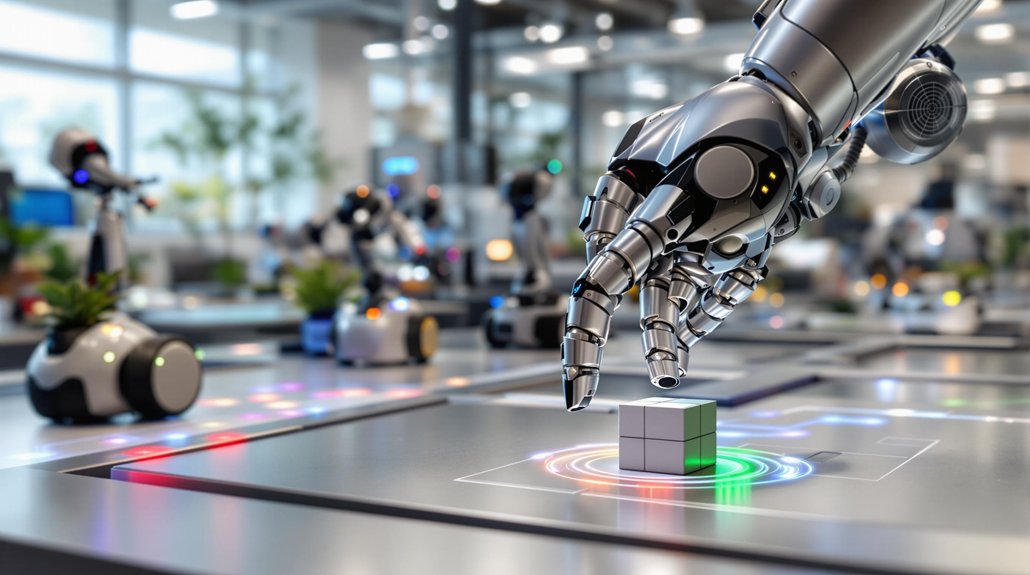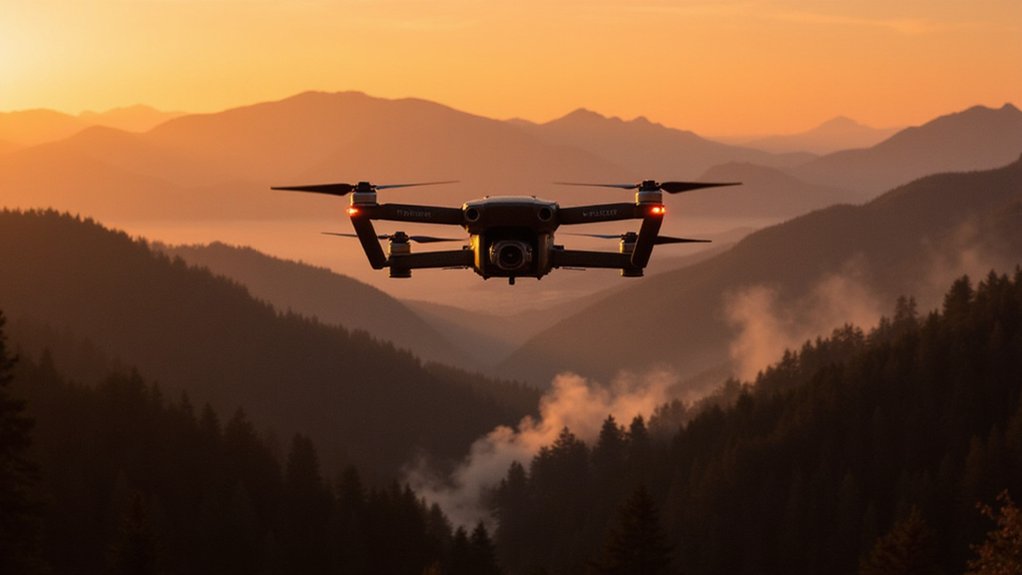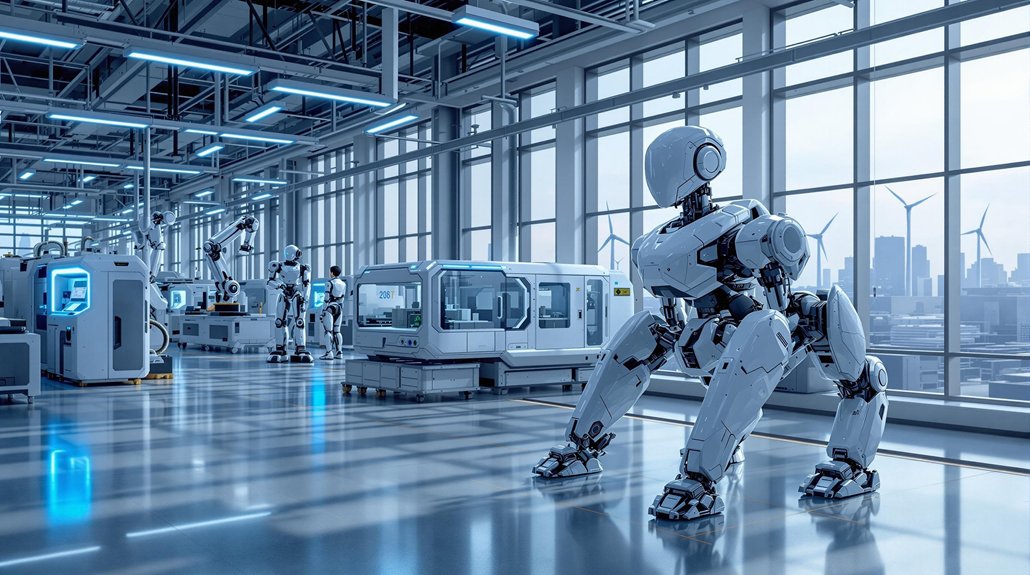Innovation in the batter’s box is taking a high-tech turn as AI pitching machines transform how professional baseball players train. These advanced devices, like the Trajekt Arc, can mimic any MLB pitcher’s style with remarkable accuracy. Using complex algorithms and robotics, they recreate the exact speed, spin, and movement of pitches from star hurlers across the league.
What makes these machines special is their ability to throw any pitch type – from blazing fastballs to diving curveballs – with the same mechanics as real MLB pitchers. Players don’t need to wait for live pitchers anymore. They can practice against virtual versions of opponents they’ll face during actual games.
AI pitching machines let batters practice against virtual clones of MLB hurlers they’ll soon face in real games.
The training benefits are substantial. Batters get immediate feedback on their swings through built-in analytics systems. They can see their bat speed, launch angle, and timing data right away. This helps them make quick adjustments between pitches. Players also improve their pitch recognition by facing a wider variety of deliveries than traditional machines offer.
These AI systems integrate with platforms like Rapsodo and Statcast 2.0, creating detailed reports on player performance. Coaches use this information to develop personalized training plans that target specific weaknesses. The machines never tire, so practice sessions are more efficient and intense. These technologies align perfectly with baseball’s shift toward contact hitting strategies that prioritize higher batting averages over pure power.
The market for these high-tech helpers is booming. Experts predict growth at 5.5% yearly through 2030, with market value reaching $179 billion by 2032. MLB teams, colleges, and training centers are quickly adopting the technology as players show measurable improvements.
Unlike old-style pitching machines with limited options, AI versions can adjust pitch location, speed, and spin with precision. The technology has seen rapid adoption, with thirty professional teams now using Trajekt Arc machines worldwide. They’re available year-round and offer consistent quality that human batting practice pitchers can’t match.
For MLB players looking to gain a competitive edge, these virtual teammates have become an essential part of modern training routines. Like other predictive analytics applications in sports, these machines help athletes forecast opposing pitcher tendencies and optimize their performance at the plate.
References
- https://sportsdata.io/mlbs-key-data-insights-for-2025
- https://techxplore.com/news/2025-05-revolutionizing-baseball-ai-simulated-pitchers.html
- https://www.cognitivemarketresearch.com/baseball-pitching-machines-market-report
- https://www.coherentmarketinsights.com/industry-reports/pitching-machine-market
- https://thehittingvault.com/the-new-ai-pitching-machine-thats-taking-mlb-by-storm/









